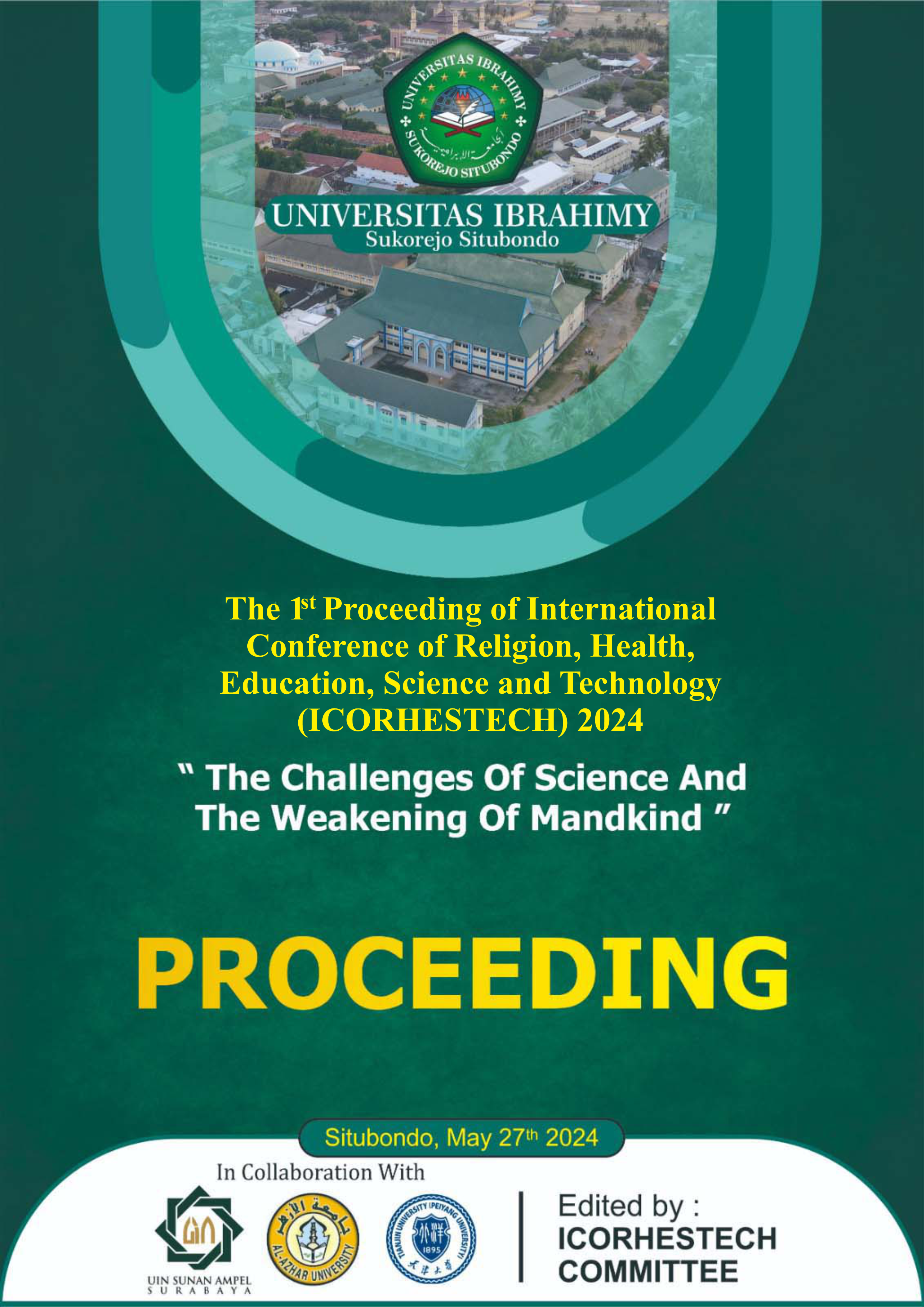The Effect of the Team Games Tournament Model Assisted by the Plickers Application on the Learning Outcomes of Mathematics Education Undergraduate Study Program Students at Bengkulu University
DOI:
https://doi.org/10.35316/icorhestech.v1i1.5601Keywords:
Learning Outcomes, Plickers, Quasi Experiment, Team Games TournamentAbstract
This research aims to determine the effect of the Teams Games Tournament (TGT) learning model assisted by the Plickers application on Elementary Algebra learning outcomes for students in the Bachelor of Mathematics Education study program at Bengkulu University. The Elementary Algebra course is a compulsory course offered in the FKIP UNIB Mathematics Education Undergraduate Study Program with a weight of 2 credits. However, the learning outcomes of students from the class of 2022 in the previous Elementary Algebra study were still low, namely only getting an average score of 58.6. So researchers applied a student-centered learning model to improve student learning outcomes. One of the learning models that can be used is the Teams Games Tournament with the help of the Plickers application. The type of research carried out was quasi experimental research with a pre-test post-test control group design. The research sample was students from the Bachelor of Mathematics Education study program at Bengkulu University, semester 1A with a total of 29 students and semester 1B with a total of 29 students. Semester 1A students applied the Teams Games Tournament (TGT) model assisted by the Plickers application and semester 2B students applied the Leaturing method or telling method. The data was analyzed statistically descriptively and inferentially through a t-test with the help of SPSS and obtained a value of ????−???????????????????? or ????????????<0.05, namely 0.00<0.05, so it can be concluded that the use of the Teams Games Tournament ( TGT) learning model assisted by the Plickers application on the learning outcomes of students in the Bachelor of Mathematics Education study program at Bengkulu University, it has a positive effect on student learning outcomes. During the learning process in the classroom, the Teams Games Tournament model assisted by the Plickers application creates a dynamic, interactive and motivating learning environment. By combining competitive, collaborative, and technological elements, this model helps increase student participation, deepen understanding of concepts, and create memorable learning experiences.
References
Andrijanto, D. (2023). The Influence of the TGT (Teams Games Tournament) Learning Model on Table Tennis Learning Outcomes. Indonesian Journal of Physical Education and Sport Science, 3(2), 243–250. https://doi.org/10.52188/ijpess.v3i2.465
Astuti, W., & Kristin, F. (2017). Application of the Teams Games Tournament Learning Model to Increase Activeness and Science Learning Results. Primary School Scientific Journal, 1(3), 155. https://doi.org/10.23887/jisd.v1i3.10471
Fitriasari, P. (2017). Utilization of Geogebra software in learning. 3(1), 57–69. https://doi.org/https://doi.org/https://doi.org/10.19109/jpmrafa.v3i1.1441
Gunawan. (2017). Introduction to inferential statistics. Rajagrafindo Persada.
Hernawati, PL, Saputro, TVD, & Andy, R. (2021). Analysis of Student Learning Difficulties in Basic Mathematics Subjects. Education for Communities in 3 T Regions, 28–35. http://e-conf.usd.ac.id/index.php/sfkip/2021
Nuryadi. (2017). Basics of research statistics. Sibuku Media.
Pratama, KR (2019). Student Perceptions of the Use of Plickers as an Innovation for Assessment of Chemistry Learning Outcomes in the Digital Era. Pedagogia, 17(3), 205–216. https://doi.org/10.17509/pdgia.v17i3.20787
Rosidine. (2019). The influence of the Teams Games Tournament (TGT) type cooperative learning model assisted by ludo media on the ability to understand mathematical concepts of class VIII MTs N 1 Bandar Lampung students. 124.
Sugiyono. (2013). Quantitative, qualitative, and r&d research methods. Alphabet.
Suwarno, S. (2019). Teams Games Tournaments (TGT) Learning Model to Improve Learning Outcomes. Philanthropy: Journal of Psychology, 3(2), 110–122. https://doi.org/10.32884/ideas.v5i4.227
Tan, CR, & Tasir, Z. (2022). The Impression of Using the Plickers Application in Learning Gamification-Based Affix Topics on Third Year Students. Malaysian Journal of Social Sciences and Humanities (MJSSH), 7(3), e001340. https://doi.org/10.47405/mjssh.v7i3.1340
Taniredja. (2014). Innovative and effective learning models. Alphabet.
Utaminingsih, S., Setiawaty, R., & Article, S. (2023). Evaluation of Learning with Gamification-Based Plickers: Literature Review. Journal of Pedagogical Initiatives, 6(2), 826–834.
Yudianto, WD, Sumardi, K., & Berman, ET (2014). Teams Games Tournament Learning Model to Improve Vocational School Student Learning Outcomes. Journal of Mechanical Engineering Education, 1(2), 323.
Yulianto, WD, Sumardi, K., & Berman, ET (2016). Teams Games Tournament Learning Model to Improve Vocational School Student Learning Outcomes. Journal of Mechanical Engineering Education, 1(2), 323. https://doi.org/10.17509/jmee.v1i2.3820
Downloads
Published
How to Cite
Issue
Section
License








